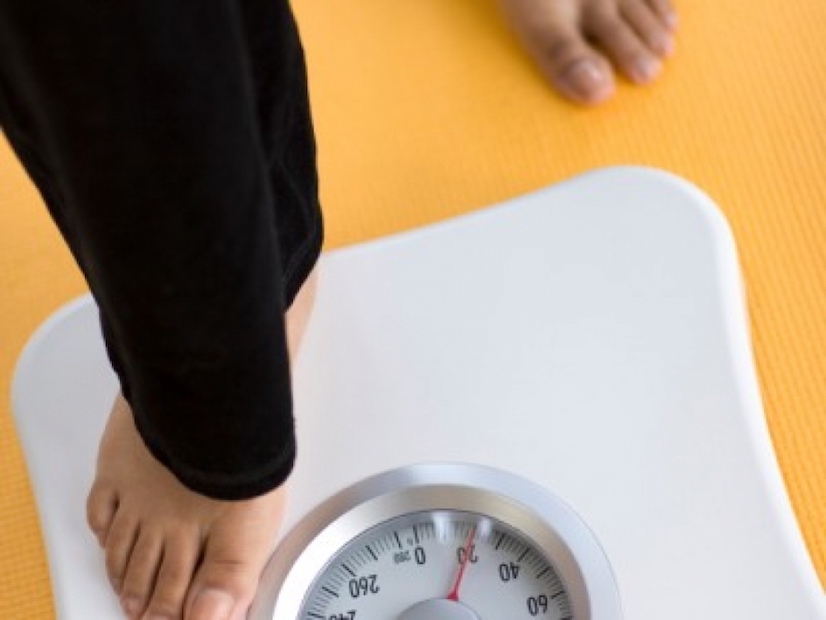So, you’ve decided to lose weight. Congratulations! Now, how do you intend on losing the weight? More important, how will you permanently keep the weight off?
After working with hundreds of clients over the years and 2,500-plus pounds of fat lost, I’ve concluded that weight loss is easy—Weight management is the real challenge. The fact of the matter is this: Over 90% of people who lose weight regain the weight within a 3-5 year period (or less).
It’s disturbing and alarming, but true.
Unfortunately, without a well-thought-out approach, you’ll surely find yourself in the same viscous cycle of weight loss and weight regain. With that being said, if you’re ready and willing to plan ahead and put in a little work, here are four highly effective strategies for losing weight and keeping it off for good.
Related Article: Understanding the Process of Weight Management
Practice Moderate Calorie Restriction with Good Nutrition
For long-term weight loss success, it’s important to practice moderate calorie restriction in order to create the caloric deficits necessary for fat loss. But, it doesn’t stop there! Maintaining a nutritionally balanced diet is absolutely critical for optimizing your weight loss efforts. Such a diet is one comprised of foods rich in high-quality carbohydrates, fats, and protein.
Collectively these foods contain all-natural chemicals that collectively rev up metabolism, optimize digestion, and reduce both the absorption and storage of fat.
Given that a pound of fat equates to 3,500 calories, a daily restriction of 500-1,000 calories will lead to a weight loss of 1-2 pounds in a week. I highly recommend you don’t exceed losses greater than 8-10 pounds per month as doing so can lead to unnecessary muscle wasting and ultimately comprise your metabolism.
If you’re extremely overweight, you may initially experience rapid weight loss for up to four weeks (usually around 5 pounds per week) but this should gradually taper off.
Related Article: The Important Role of Metabolism in Weight Loss
Perform Various Combinations of Physical Activity Every Day
All dieting plans should be supplemented with regular physical activity through a combination of structured exercise (cardio and resistance training) and spontaneous activity (taking the stairs and sporadic walking). This is especially crucial for reducing the appearance of loose, flabby skin, which generally occurs when a large amount of weight is lost through dieting.
The exact amount of activity you choose to perform each day really depends on the speed at which you wish to lose weight.
In conjunction with dieting, you can easily achieve significant weight loss with as little as 30 minutes of daily physical activity. In addition, doing so can greatly reduce your risk of developing numerous chronic diseases (high blood pressure, heart disease, and type 2 diabetes).
While 30 minutes of daily activity is quite beneficial, accumulating more (in the ballpark of 60-90 minutes) will lead to substantial weight loss, particularly when resistance training is regularly incorporated.
Related Article: 5 Reasons Why Resistance Training Is Necessary for Weight Loss
Maintain Sensible Eating Habits Once You’ve Lost Weight
Many people who’ve lost a substantial amount of weight through dieting carelessly revert back to the same habits that caused their weight gain in the first place. They’ll often reward themselves by haphazardly eating their favorite junk foods and totally neglect the practice of calorie management.
Over time, these unhealthy practices can significantly disrupt calorie balance and eventually lead to weight regain. But calorie control alone isn’t enough for long-term success.
Related Article: 3 Highly Effective Ways to Lose Weight Without Counting Calories
Consuming a sensible diet is critical for maintaining a weight loss and can even negate the need for calorie counting by boosting the body’s natural fat burning mechanisms. Such a diet is one primarily comprised of vegetables, fruits, high-fiber whole grains, healthy fats, and high quality protein.
It’s important to understand that you can eat and enjoy a wide variety of foods in all forms if you choose to, even foods deemed unhealthy from time to time. For long-term weight control, moderation is key.
Related Article: A Simple Guide to Eating Sensibly
Continue to Be Physically Active After Weight Loss
Oftentimes people who observe me during my workouts will ask: “Why are you working out so hard, you look great.” My answer is always the same: “Because I have a chronic condition (obesity) and exercise is my medicine.” Yes, obesity is a chronic condition and I’ve been fighting to control it all my life.
The chronic nature of obesity is one of the reasons why weight regain is so common among obese people who’ve lost weight. Personally, I have friends who exercise sporadically without any weight gain but I’ll gain a pound or two by simply missing a few workouts within a week’s time. It is what it is.
Related Article: Why You Need to Change Your Exercise Routine Regularly
People who continue to engage in physical activity after weight loss rarely experience significant weight regain because they regularly create caloric deficits by simply burning any extra calories they consume. So, if you opt to discontinue exercising after losing weight, thereby, decreasing the amount of daily calories you burn, weight regain will inevitably occur.
Therefore, to avoid weight regain after weight loss, you must continue to expend calories every day through physical activity—Even if it means replacing those ‘traditional’ workouts with sporadic activities that are more innovative and fun.
Related Article: Five Interesting Ways to Exercise Without Exercising
As a scientist who’s studied obesity extensively, a clinically and industry trained health expert with over 15 years of experience in weight loss, and one who’s successfully managed this condition for decades, I can confirm that these simple tips actually do WORK. However, I must emphasize that in addition to careful planning, this strategic approach to successful and sustained weight loss requires just that—WORK.







